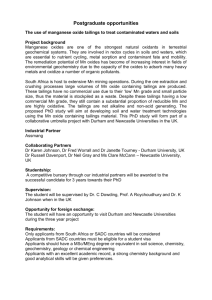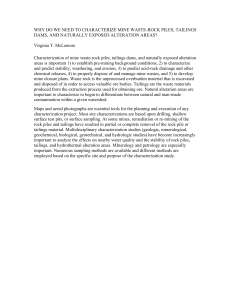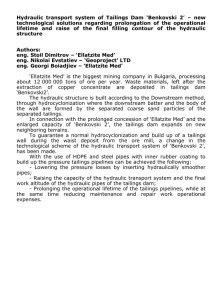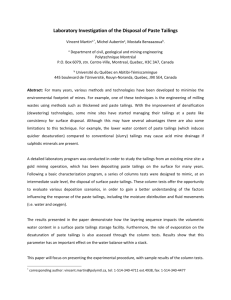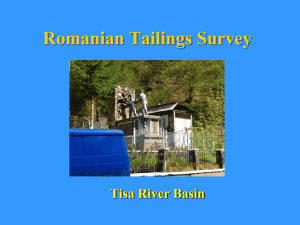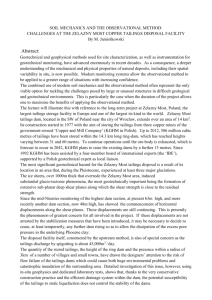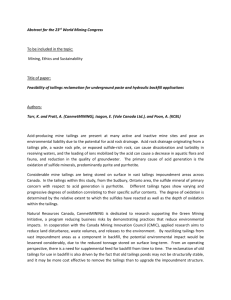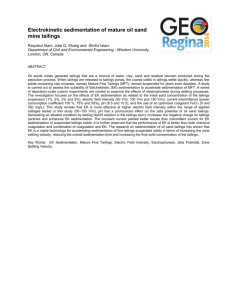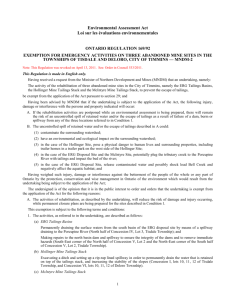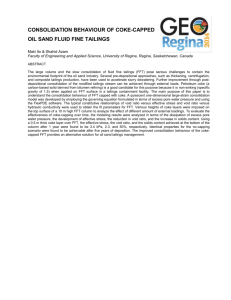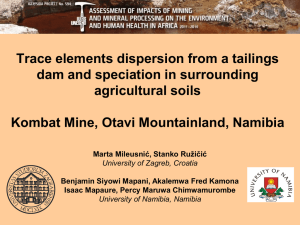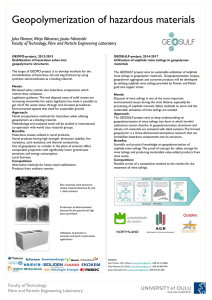predicting and preventing spreading of fines in submarine tailings
advertisement
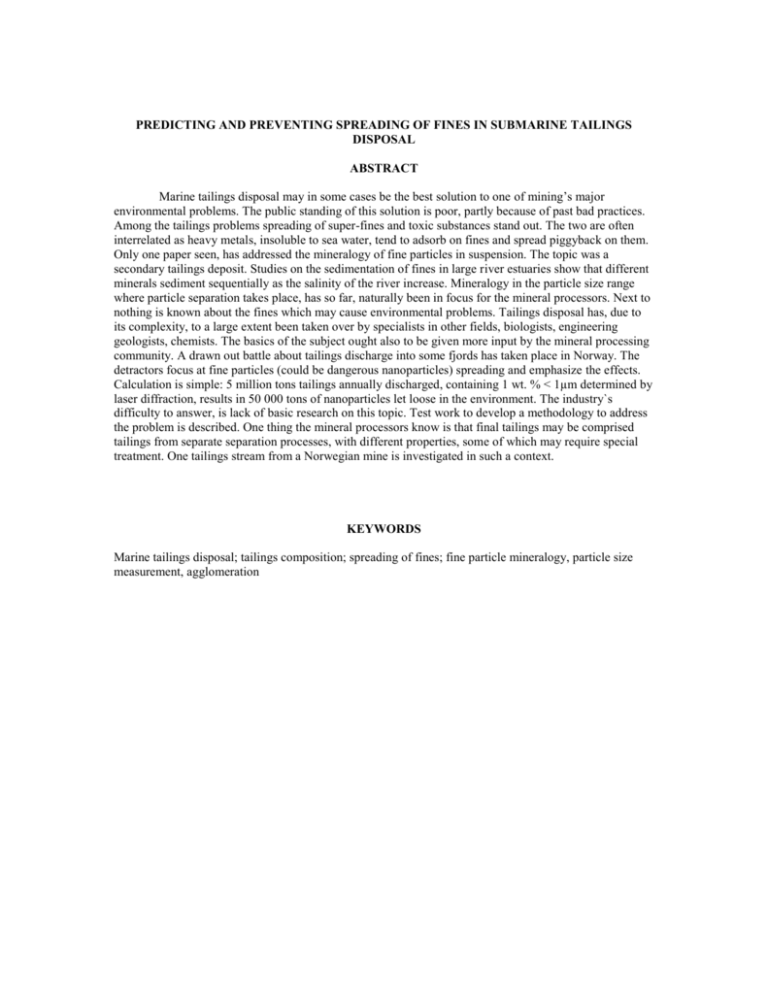
PREDICTING AND PREVENTING SPREADING OF FINES IN SUBMARINE TAILINGS DISPOSAL ABSTRACT Marine tailings disposal may in some cases be the best solution to one of mining’s major environmental problems. The public standing of this solution is poor, partly because of past bad practices. Among the tailings problems spreading of super-fines and toxic substances stand out. The two are often interrelated as heavy metals, insoluble to sea water, tend to adsorb on fines and spread piggyback on them. Only one paper seen, has addressed the mineralogy of fine particles in suspension. The topic was a secondary tailings deposit. Studies on the sedimentation of fines in large river estuaries show that different minerals sediment sequentially as the salinity of the river increase. Mineralogy in the particle size range where particle separation takes place, has so far, naturally been in focus for the mineral processors. Next to nothing is known about the fines which may cause environmental problems. Tailings disposal has, due to its complexity, to a large extent been taken over by specialists in other fields, biologists, engineering geologists, chemists. The basics of the subject ought also to be given more input by the mineral processing community. A drawn out battle about tailings discharge into some fjords has taken place in Norway. The detractors focus at fine particles (could be dangerous nanoparticles) spreading and emphasize the effects. Calculation is simple: 5 million tons tailings annually discharged, containing 1 wt. % < 1µm determined by laser diffraction, results in 50 000 tons of nanoparticles let loose in the environment. The industry`s difficulty to answer, is lack of basic research on this topic. Test work to develop a methodology to address the problem is described. One thing the mineral processors know is that final tailings may be comprised tailings from separate separation processes, with different properties, some of which may require special treatment. One tailings stream from a Norwegian mine is investigated in such a context. KEYWORDS Marine tailings disposal; tailings composition; spreading of fines; fine particle mineralogy, particle size measurement, agglomeration
